Scientists
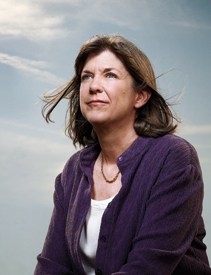 JUDITH CURRY
JUDITH CURRY
Judith Curry is a climatologist who has led researches on the link between climate change and hurricane intensity. She has worked in collaboration with the National Oceanic and Atmospheric Administration (NOAA) Climate Working group, and she is currently a professor in Earth and Atmospheric Sciences at the Georgia Institute of Technology. She runs a blog “Climate Etc” that can be viewed at www.judithcurry.com.
Judith Curry acknowledges that since hurricane Katrina struck in 2005, the scientific community has largely gathered around to focus on hurricanes and global warming, but that there has never been an agreement among them as to the causality link these relations could imply. Working with other scientists, Curry presumed that the change in hurricane intensity at least is an signal of global warming and its influences. Thanks to the verification of previous databases, scientists have come to a better understanding of climate change and its relationship to extreme events, but she notes that the studies have been relying mostly on data available since the 1970’s for the Atlantic pool. Read the full interview here.
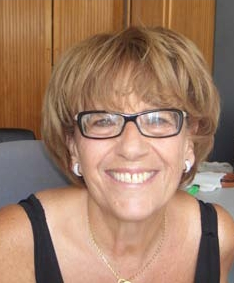 AMY DAHAN
AMY DAHAN
Amy Dahan is a researcher at the Conservatoire National de la Recherche Scientifique (CNRS), and in charge of the programme Climate Change, Expertise and Fabrication of Futures, at the Alexandre Koyré Center.
Amy Dahan brings a different view on the controversy climate change/hurricanes as she takes a historical and sociological angle on the debate. She looks at the work of American scientists arguing that climatologists are now driven by a concern on precaution measures in their research, to be able to understand extreme events in order to warn the populations and limit the damages. They proceed by using downscaling methods and with regional models. This leads to a small-scale comprehension of the problem, in terms of space but also in terms of time. Read the full interview here (unfortunately for our non-francophone readers, this interview is only available in French).
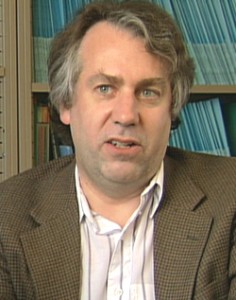 KERRY EMANUEL
KERRY EMANUEL
Kerry Emanuel is a researcher in meteorology working at the Massachusetts Institute of Technology.
Emanuel justifies the reasons why the Atlantic pool is one of the best databases for the study of hurricanes intensity and global warming. Scientists looked closer at the metrics, the power of dissipation and the wind speed of storms in order to measure the variation of intensity of hurricanes. The linearity of the Atlantic’s observations by aircrafts and satellites offers a clear set of data to analyze hurricanes over the years. Emanuel concludes that there is a clear relationship between ocean temperature and hurricane power. According to Kerry, the most interesting thing when studying hurricanes is not the dichotomy frequency/intensity that many scientists focus upon, but rather the frequency of the most intense storms (cat. 3, 4, 5 on the Saffir-Simpson scale). He stresses the idea that power dissipation is something that varies with the frequency of intense hurricanes, and thus should be a higher concern to the scientific community. Read the full interview here.
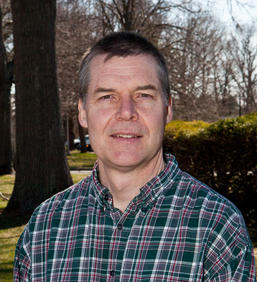 THOMAS KNUTSON
THOMAS KNUTSON
Thomas Knutson is a climatologist working at the NOAA as a climate modeler, supporting the idea that an increase in carbon dioxide (induced by global warming) leads to a more intense hurricane activity. According to his researches, global warming will impact the frequency of hurricanes which will decrease, but will intensify the strongest ones (cat. 4 and 5).
CHRISTOPHER LANDSEA
Christopher Landsea is a meteorologist who has worked with the NOAA and is now working at the International Hurricane Center.
Christopher Landsea is one of the few scientists to stand out from the scientific community around the topic of climate change and hurricanes behaviors. He acknowledges the difference of opinions, although the controversy was stronger five years ago and is now moving towards a general agreement. Landsea notes that the research is conclusive and that there is indeed a global warming, and since hurricanes are heat engines, it is logical to expect a variation of hurricanes intensity due to climate change. The issue that Landsea raises is that the variation observed is too small to lead to clear conclusions, and that the sensitivity of hurricanes to global warming is too small to measure it. He adds that we see no significant increase of strong storms, contrary to what Kerry stated. Read the full interview here.
ROGER A. PIELKE SR.
Roger A. Pielke Sr. is a meteorologist, currently at the Cooperative Institute for Research in Environmental Sciences (CIRES) at the University of Colorado as a Senior Research Scientist. He regularly writes on his blog launched in 2005 (http://pielkeclimatesci.wordpress.com) about climate issues. His work is focused significantly in the role of land use and other human influences on the climate system, on a very large scale. On extreme events in general and on hurricanes, Roger Pielke’s point has always been that demographic changes overshadow climate change, especially in the United States where there is a huge migration from inland to coastal region.
 ROGER A. PIELKE JR.
ROGER A. PIELKE JR.
Roger A. Pielke Jr is a professor of environmental sudies at the Center for Science and Technology Policy Research at the University of Colorado. There, he teaches and studies Science and Technology Policy. He is interested in the role of science and technology in decision making. If he is involved in a lot of different areas, in the last 20 years he focused his research on the issues of climate, and more specifically on climate change policy. His view is that the dominant factors that shape the impact of hurricanes on society are not related to climate, but are rather societal. In his paper Bringing Society Back into the Climate Debate, co-written with Daniel Sarewitz, he asserts that « the primary cause for the growth in impacts is the increasing vulnerability of human and environmental systems to climate variability and change, not changes in climate per se » : demographic, social, economic and other changes in human populations are primary factors. He therefore supports an effort to develop response strategies to adapt to the increase in damages. The most significant research would indeed has to do with engineering and building structures. More information about his views can be found on his blog (http://rogerpielkejr.blogspot.fr). Read the full interview here.
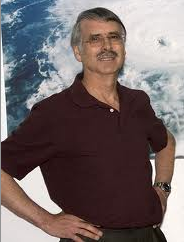 KEVIN TRENBERTH
KEVIN TRENBERTH
New Zealander Kevin Trenberth is a distinguished Senior Scientist at the National Center for Atmospheric Research (NCAR) and the Chairman of Global Energy and Water Cycle Experiment at the World Climate Research. He is known for his climate models and for being very much involved in the Intergovernmental Panel on Climate Change (IPCC) assessments, since the nineties. His current primary research is on the global energy and water cycles, and how they are changing, leading him to have a position within the controversy over hurricanes and global warming. According to him, even though we don’t have good data on the history of hurricane behavior, global warming do affects hurricanes. (The air is warmer and moister over the oceans, which also leads to heavier rains). Tropical storms become more intense but less numerous. Read the full interview here.
 PETER WEBSTER
PETER WEBSTER
Peter Webster is also a significant actor in the controversy. He is an atmospheric scientist and professor at the School of Earth and Atmospheric Sciences of the Georgia Institute of Technology in Atlanta, teaching an researching on the atmospheric and ocean dynamics, and the interaction between the two. His team observed an increase in hurricane intensity.

